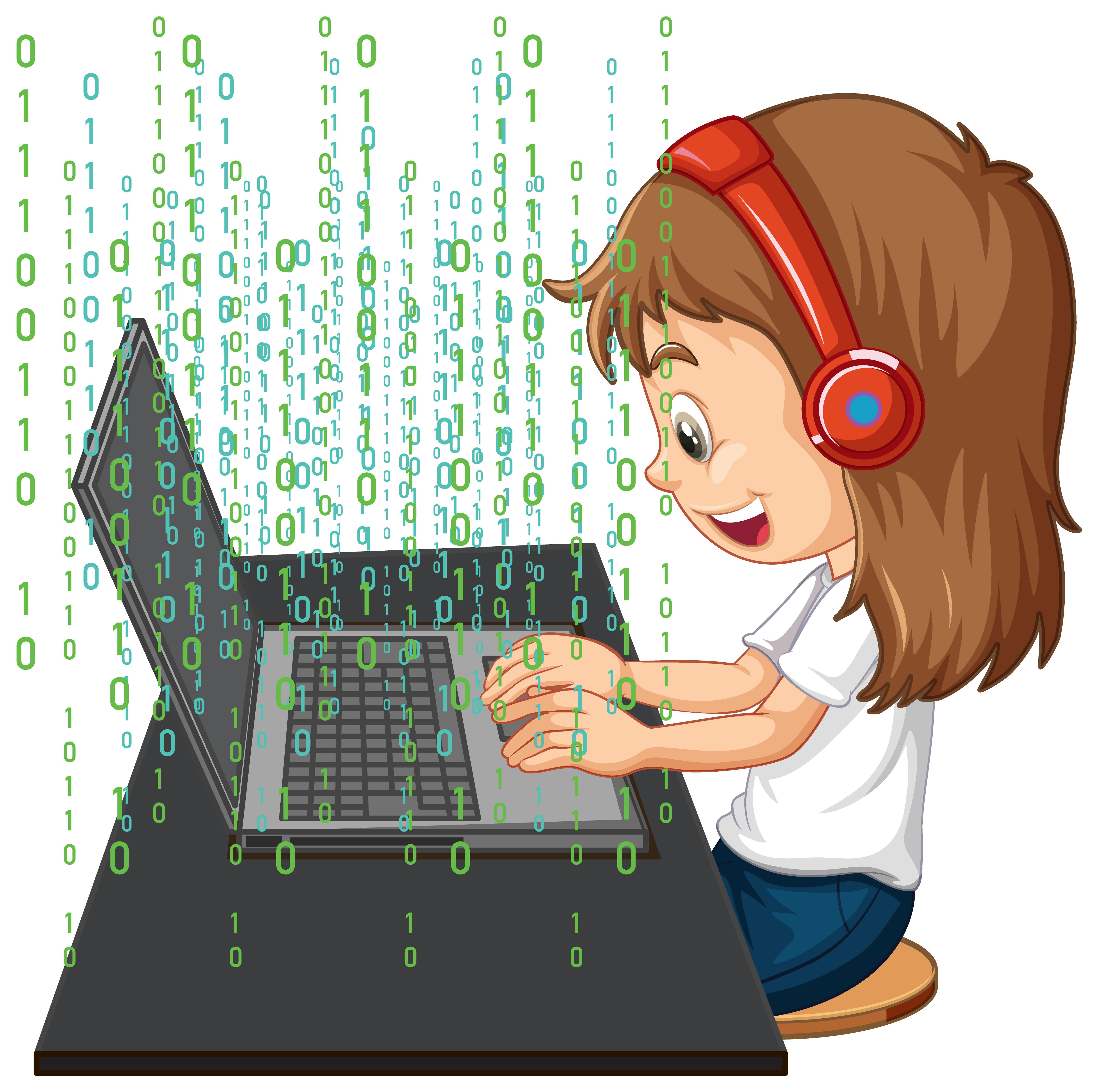Being able to code is like possessing superpowers. Coding is the computer language that allows you to create anything from helpful programs and websites to entertaining games and animations. But not just grownups or computer whizzes can learn to code. Learning to code has never been simpler or more enjoyable for kids like you! Anyone can learn to code with patience and practice, just like they can learn to ride a bike or take up a new sport.
Together, we'll travel through the principles of coding in this course in an interesting, hands-on, and—most importantly—fun way! We will begin by going over the fundamentals, including the components of code and how to use them to write basic programs. As you use code to bring your ideas to life, you'll get to play games, solve puzzles, and let your imagination run wild.
5 Important Reasons For kids Should Learn Coding
Learning to code is not just a useful talent, but also a necessity in the fast-paced, technologically-driven world of today. Knowledge of and proficiency with technology are becoming more and more crucial as the digital world changes. For this reason, learning to code is more than simply a fad for children; it's a vital educational opportunity that will help them get ready for the future like never before. Kids who learn to code are more equipped to become independent inventors, problem solvers, and creators. They have a great time experimenting with technology while developing their critical, logical, and creative thinking skills through coding. But the benefits of coding for kids extend far beyond just mastering computer languages. Here Are the 5 important reasons for kids should learn coding:
- Critical Thinking and Problem-Solving Skills
- Creativity and Innovation
- Future-Proofing
- Improved Problem-Solving and Persistence
- Empowerment and Confidence
1) Critical Thinking and Problem-Solving Skills:
Kids who code are forced to use reason and methodical problem-solving techniques. Coding develops critical thinking abilities that are necessary for success in school and beyond by dissecting difficult tasks into smaller, more achievable steps.
2) Creativity and Innovation:
Kids can express their creativity through coding, which enables them to realize their ideas in fascinating ways. Kids who learn to code are encouraged to think creatively and imaginatively, whether they are creating games, animations, or applications.
3) Future-Proofing:
The language that fuels technology in the modern digital age is called code. Young children who learn to code get a great skill set that will be highly valued in the job market in the future, regardless of the career route they ultimately pick.
4) Improved Problem-Solving and Persistence:
Kids who learn to code learn the value of tenacity and fortitude in the face of adversity. Kids can debug their code, correct mistakes, and overcome obstacles via trial and error—skills that are transferable to success in any sector.
5) Empowerment and Confidence:
Learning to code encourages children to become creators rather than only tech users. Coding helps youngsters develop their confidence and self-esteem and prepares them for success in the classroom, the workplace, and life by providing them with the skills to create their projects and tackle real-world challenges.
Conclusion
In conclusion, there is no denying the advantages of teaching children to code. It not only gives students useful abilities like creativity, problem-solving, and critical thinking, but it also gets them ready for success in an increasingly digital environment. Kids who learn to code get the self-assurance necessary to succeed as leaders, innovators, and creators in their own right. Coding also helps children develop a growth mentality, which will benefit them in all facets of life by teaching them to accept difficulties and overcome barriers. Thus, learning to code gives youngsters the ability to affect the future in ways that are unimaginable, regardless of whether they want to become the next big tech company, game developer, or just want to know how the world works.

